The Welsh rock group’s main man recalls scribbling lyrics on paper bags, dabbling in scriptwriting, and struggling with “life block”
Born and raised in Cwmaman, South Wales, singer-songwriter Kelly Jones is the gravel-voiced frontman of rock band Stereophonics. Since forming in 1992 with bassist Richard Jones and the late Stuart Cable on drums – now with drummer Jamie Morrison and guitarist Adam Zindani – the group has achieved more than 10 million sales, six No 1 albums and 11 Top 10 singles (including the chart-topping Dakota), along with 23 platinum sales awards, five BRIT nominations and one BRIT Award win.
Returning in 2019 with their eleventh studio album, Kind, Kelly continues to cement his place amongst the great British songwriters, with an uncanny ability to weave music and lyrics from everyday observations as well as his own life experiences.
We caught up with Kelly in his studio in Shepherds Bush, where he was rehearsing for the second leg of his solo tour, and got to know how it all came together…
See Stereophonics’ Live Dates & Tickets
Why did you choose to have a studio there in West London? Do you do any writing there or is it just for rehearsing and recording?
“We record in lots of different places, but I wanted a place to kind of come to work every day. Around 2011/2012, I was working on a screenplay for Graffiti On The Train, because that began as a film idea. So I’d come here in the day time – I’d take the kids to school, come in and do scriptwriting from about 11 am and 4 pm, go back and see the kids, then I would do music at the back of the studio where we’ve got a control room and a little live room with piano, guitars and stuff. We recorded overdubs and vocals here, and this is where I bring all the hard drives back to, to sort through and start mixing, but we generally record the band live in bigger rooms like RAK in London or ICT out in Brussels.”
Take us back to the beginning. You started out playing covers in working men’s clubs, so when did you decide to write your own songs?
“I was in a band from around the age of 11 or 12, I did my first gig in 1987 in a working men’s club at the end of the street. My old man was going around the working men’s clubs when I was a kid – he had a deal with Polydor Records before I was born and when I was growing up his record was on the local jukebox in the club. That was kind of a weird thing. And I had two older brothers who were eight or nine years older than me, and every Sunday night, after football, they would run an extension lead from the kitchen to the bathroom and they’d have an old, silver Toshiba tape recorder attached to it, playing cassettes on it. So I’d be listening to Eagles, Creedence Clearwater Revival, Bob Dylan and all that kind of stuff through my brothers, through the wall of the bathroom. Then when they would leave they’d, unfortunately, take the stereo and the extension lead with them. So my first memory of making up songs and melodies is sitting in that bathwater after them two had been in it – so I was the third in the bath – making up melodies and songs, probably because those bastards took away the stereo!”
Good job they did, really!
“Yeah! So that was my earliest memory of making up little melodies that I knew weren’t anybody else’s and I was probably about eight or nine years old. Then when I got to about 12, I had a guitar and I started in a band. We’d do Van Halen covers or Eagles cover, or Free, and sometimes we’d slot one of our own songs in between two very popular covers, to see if we could get away with it! It began quite young, but I didn’t start writing the lyrics in those bands until I was about 18 years old, once I started art college.”
So which of the songs on Word Gets Around would’ve been the earliest one you’d written?
“Well, I was working in a fruit and veg market stall from the age of 16 on a Saturday and in the holidays, and I would start writing lyric ideas on the back of the brown bags I was serving. So I remember writing More Life In A Tramps Vest, Last Of The Big Time Drinkers, songs like Raymond’s Shop and Carrot Cake And Wine – a few B-sides around that time – and A Thousand Trees. And I guess when I went to art college, it was like an art school and film school so I was writing scenes from movies and screenplays, and I found that the dialogue I was writing became songs, like She Takes Her Clothes Off and Billy Davey’s Daughter. So they all become very visual and filmic stories, because most of the first album was ‘from the outside looking in’ and observational songwriting – I didn’t really have a lot to say about myself at that point. So it was a lot more storytelling on that first record, most of that was written on the market and in college. We’d rehearse every Thursday and Sunday, and I’d piece the songs together there.”
You mentioned that Graffiti On The Train was meant to be a movie script. Have you always been interested in film-making?
“To me, it all comes under the same heading of ‘storytelling’, really. It’s just a much more collaborative sport, film-making – there needs to be a lot of people in line at the same time. Whereas, with music, you write the songs yourself and then you’ve just got to get the boys together to record them. But I always have an idea for videos and the artwork, and all that kind of stuff.”
Going back to Word Gets Around, you said that the lyrics came to you on the market stall, but how did you turn them into songs? Did you sit alone with the guitar, or were you jamming out the music as a band?
“On that album, we’d rehearse at six o’clock on a Thursday and on a Sunday from about 12 o’clock, and what would happen is Stuart would be in front of me and we’d be looking at each other – so I wouldn’t be facing out like we are on stage – we’d be in a triangle formation, me, Rich and Stuart. I’d start a sequence of chords, the boys would join in, I’d put a melody on it and we’d kind of flesh out some sort of arrangement, then we’d go and finesse it and finish the words. Sometimes I’d have the words completely and I’d put the words into a jam that we had, but a lot of that first record – aside from Traffic which came towards the end which I’d pretty much written entirely before we got into the studio – it was kind of a band in a room, carving out something from a piece of rock, really, piecing it together as we were going along. They were very much stories about that place and that time, and it was the three of us fleshing it out, and then I would take it away and bring it back complete.”
Do you find lyrics easy to write, or are they like a cryptic crossword that you enjoy tackling?
“A lot of people say the lyrics are the hard part of the song, but I’ve never really… For the first and second albums we were just trying to get it together, and from that point on – because we never got into a room as much as we could when we were kids, we’d be touring and by the time we came back from touring people were expecting you to have an album finished – from that point on I’d just write wherever I was: on buses, on planes, in hotel rooms. I didn’t feel the need to take time out in a log cabin on top of a mountain to write lyrics! I would just write whatever I was feeling at that particular point.
“What I found, looking back, after 25 years of doing it, is that four little lines or 14 seconds of an idea on your phone can turn into something that 50,000 people in a field can recognise. Just put everything down. Don’t edit yourself; figure it all out later. My biggest mistake is I find it very hard to listen back to everything I’ve done – I record pretty much any little idea that comes along.”
So it’s the sheer volume of ideas that you find difficult to wade through?
“When we did Performance And Cocktails, it wasn’t until two or three days before that I actually found Just Looking, Bartender And The Thief and, I think, Pick A Part That’s New – I kind of forgot they were on one of those cassettes! And not in a cocky or arrogant way, I’d just put ideas down on a tour bus and just forget about it, and then just before you get in the studio you think, ‘I’d better check through these tapes,’ and you listen to it and go, ‘Fuck, that’s a pretty good idea!’ Then, of course, some of them end up being the lead singles off the album!
“It’s easy to record stuff, I don’t label things, I’ve got my phone and everything saved, but then I have to listen through them all to find these little ideas, and you realise it doesn’t have to a four-minute, complete song on a tape recorder to be an amazing thing, you can always pick something out of it. So I think, just put it down and try not to edit yourself.”
Is this an approach you’ve developed, instinctively, or have you learnt anything from working with co-writers, producers or other musicians?
“Well, I’ve never really had any experience of co-writing because I’ve never really written in a studio, so I kind of have to make it up as I go along! Nobody ever really understood my demos because they’re so basic – I know what I want to do with them, to me they’re very obvious, but I suppose to somebody else they’re just one man and a guitar. So I’ve never really built up any more than two tracks and a guide. For me, once the song it out, if I can play it on a guitar by myself I know they’ll work, and once I start producing it, it’ll form into a record. The song is one thing and the record is another.”
I suppose, thinking back to the indie rock scene of the late 90s and your contemporaries, writing on your own with a guitar was the norm – working with a team of songwriters wasn’t really the done thing…
“It wasn’t and it’s become a big thing now. I’ve worked with a few producers and experimented recently, and I know they write a bit here and a bit there, and there ends up with six songwriters on a track. Obviously, the early songs I do class as a co-write because it was me, Stuart and Rich, and I’d put the lyric on top. And I’ve written a couple where Adam Zindani [current Stereophonics guitarist] has put a bit to, but I’ve never really sat in a room and worked things out, until recently – I did a solo tour and we had a band from Austin, Texas called The Wind And The Wave (that’s Dwight Baker and Patricia Lynn) and we’re going to make a record together. That’s the only time I’ve sat down with two other writers, in a room, and it was quite interesting but it’s not the way that I’ve worked for 23 years!”
North America has cropped up as a topic a few times in your lyrics and song titles, and there’s an element of American rock to your sound, but (surprisingly to us) you’ve not really broken-through commercially over there. Any idea why that might be?
“I’m not sure, really. I don’t think people are that different all over the world. We can play across America and do two to three thousand-capacity venues wherever. When we signed to V2 and V2 America, we were a kind of guinea pigs in a flagship, and that company chucked money into so many different things. We flew in some territories, and in other territories, we didn’t quite take off. And I think, once you miss that window of the second and third album – and by our third album we were one of the biggest bands in Europe – and you don’t really crack [the US] at that point, it’s not really going to happen. At the time it was kind of frustrating, but now I don’t give it a thought, really. And now, especially with streaming, there are way more people in control. I think America is our second-biggest streaming market, so it’s interesting how it all changes.”
Let’s talk about Performance And Cocktails. You said you already had a lot of that material already in the bank, in terms of ideas, so was it straight-forward going into recording, or was it actually that ‘difficult second album’?
“We never went into a recording studio to make an album without touring at the same time. With Performance And Cocktails, we’d record three songs then go back on tour. But I never wrote any of the songs in the studio – they were already on a cassette – so we went in there to work out the production of the arrangement. But I didn’t find the album, in memory, very difficult – I found it very enjoyable. I know we wanted to make a bigger sound that than the first one, and when it starts with Roll Up And Shine, it’s just fucking massive. And when Bartender And The Thief came on the radio in 1999 amongst Steps and fucking S Club 7, it was quite exciting! And that was the first time we had any TV and radio coverage – people forget that Radio One didn’t really play Word Gets Around, they only started playing it after we won the Best Newcomer award at the Brits. We had the fan base and the live work, but then once radio and TV came on board then the album kind of exploded.”
How did approach writing the material for the later albums? Were you still drawing from a pool of ideas you’d come up with on the road, or were you getting to point of sitting down to write specifically with a concept or theme in mind?
“Well, my approach is always to try to change my approach, really. After Performance And Cocktails, I went the complete opposite and on Just Enough Education… I went very acoustic – I wanted to make an album like Neil Young. Then after that I wanted to produce my own records, and with You’ve Got To Go There To Come Back I was into Stevie Wonder and John Lennon, and it was a very raw, stripped-back, soulful record from one angle, but in other ways we had a lot of overdubs and production on there. Then when I got to Dakota and Language. Sex. Violence. Other? I didn’t use any Gibson guitars; they were all Fenders, so that sounded completely different. Then I got into 12-strings and I started writing on a piano, then I started writing songs on the bass. So they were small, subtle changes, but going from playing a Gibson SG for five years to using the Fender Jaguar, you’re bound to sound different. And one minute you’ve got an AC/DC backing track and then it’s a bit more Elvis Costello, so it’s a different kind of approach.
“Lyrically, I’d always just write whatever I was going through at that point in time, I never tried to fake it, I never tried to make it up too much, or overthink it. The approach would be to always let it come. Sometimes you have to force it a bit, but generally, I would try to get as many of things I could prior to going into the studio. I don’t think I’ve ever booked a studio without songs, ever – that’s not really the way I work.”
Although we hear that with your new album Kind you had got to a point where you didn’t have any songs…
“Yeah, well, Kind came after a very flat period in my life. I was kind of done with touring, hotels and buses after 22 years. I was living in my head a bit too much, and I became very mindful that a lot of time had been wasted waiting for something to happen. I still loved [performing live] and still found it challenging, with our massive catalogue of music to play with every night, but the way I was treating myself and my wife, and the lifestyle was taking its toll. I was kind of at full capacity and I needed to stop. It didn’t feel writer’s block, it felt like a bit of a ‘life block’ – it wasn’t that I couldn’t write a song, I didn’t try to write a song!
“But when I did stop for a few months, I found that when these little ideas did start to come, they were kind of informing me how I was feeling. They were pages and pages of words, there were no corrections, they were very final and complete. I guess they were telling me that I wanted to change something and accept and be less resistant to the challenges I was going through in my life. With all the records, the words have come from a real place in my life, but I wanted to keep this [album] very simple, production-wise and very spontaneous when I recorded it, because I wanted to capture the performances the way the songs came to me.
“I genuinely didn’t care if anybody was interested in it, or liked it. At the time I was going through, I just wanted to get it out, but now that a couple of songs have been heard and people have responded to Fly Like An Eagle in a very positive way… It’s weird because when you write it you didn’t really analyse what you’re saying, you’re just doing it, and it’s almost like an antenna and it’s travelling through you… But as soon as you start seeing a reaction to something you’ve written, you go, ‘Oh yeah, I suppose I did mean that.’ Like with Maybe Tomorrow, to me it was just a line, but then you realise everybody would like to get to a better place tomorrow. It’s funny, I don’t know where they come from, but they just keep coming.”
The Stereophonics album Kind is out now through Parlophone Records. For more details, go to stereophonics.com
See Stereophonics’ Live Dates & Tickets




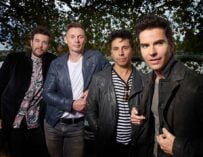

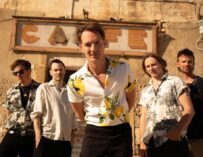
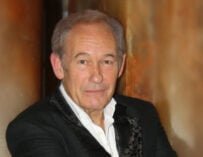





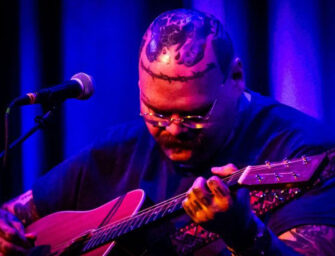
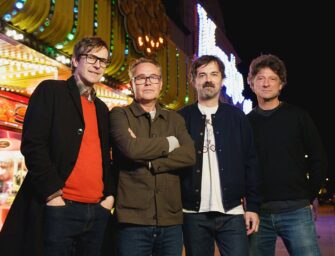





















Related Articles